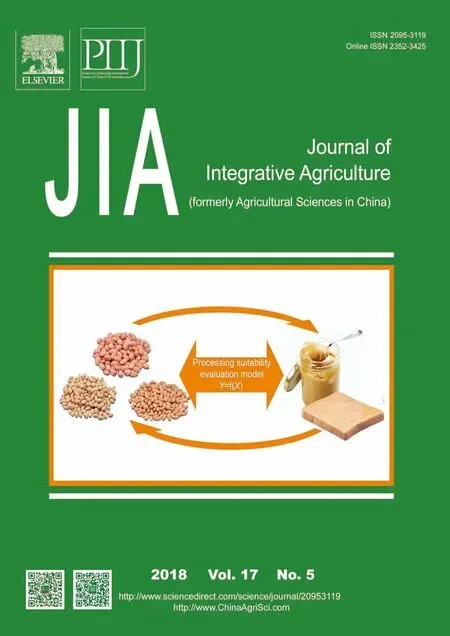Insect heat shock proteins and their underlying functions
Prof. DU Yu-zhou
Guest Editor School of Horticulture and Plant Protection &Institute of Applied Entomology, Yangzhou University Yangzhou 225009, P.R.China
Considering huge number of insect species in the world,studies of heat shock proteins on insects are still very limited.Special focus of “Insect heat shock proteins and their underlying functions“ provides a comprehensive knowledge for the given topics, which focuses on the heat shock proteins from four insect species: i) Five heat shock proteins (HSPs)fromCotesia chiloniswere identified, and their expressional patterns under different temperatures were examined; ii)two novel HSP70s ofFrankliniella occidentalispossessed different family characteristics; iii) less reported T-complex polypeptide 1 (TCP-1) fromChilo suppressalisHSP60 family showed different functions; iv) HSP18.3 ofTribolium castaneumplayed important roles in stress resistance,development and reproduction.
The first article regarding five HSPs ofC. chilonisfrom Panet al.(2018) described the cDNA sequences and genomic DNAs ofCchsp40,Cchsp60,Cchsp70,Cchsc70andCchsp90, and their expression levels under low or high temperatures. The second article about the two HSP70s ofF. occidentalisfrom Qinet al.(2018) examined the full length cDNAs ofFohsc704andFohsc705, as well as their positions and size of the introns. The results also demonstrated that these two HSP70s played important roles in the thermotolerance ofF. occidentalis. The third paper of Yuet al.(2018) detailed the characterization of the Tcp-1 fromC. suppressalis. Genomic analyses indicated that there were no introns in theTcp-1gene, but the expression levels ofTcp-1weren’t induced by temperature stresses. Finally,Xionget al.(2018) described the transcriptome pro files of RNA interference (RNAi)-treated larvae (ds-Tchsp18.3) and control larvae ofT. castaneum. The results showed that the knockdown ofTchsp18.3gene expression affected various stress responses, innate immunity and the antioxidant activity process.
I genuinely hope that the readers of theJournal of Integrative Agriculturewill be interested in these topics, and these papers could provide useful information for their research.I appreciate all authors give their high-quality contributions and efforts to this special focus.
Pan D D, Cao S S, Lu M X, Hang S B, Du Y Z. 2018. Genes encoding heat shock proteins in the endoparasitoid wasp,Cotesia chilonis, and their expression in response to temperatures.Journal of Integrative Agriculture, 17,1012–1022.
Qin J, Gao P, Zhang X X, Lu M X, Du Y Z. 2018. Characterization of two novel heat shock protein 70s and their transcriptional expression patterns in response to thermal stress in adult ofFrankliniella occidentalis(Thysanoptera: Thripidae).Journal of Integrative Agriculture, 17, 1023–1031.
Xiong W F, Xie J, Wei L T, Zhang S S, Song X W, Gao S S,Li B. 2018. Transcriptome analysis ofhsp18.3functions and regulatory systems using RNA-sequencing in the red flour beetle,Tribolium castaneum.Journal of Integrative Agriculture, 17, 1040–1056.
Yu T Y, Lu M X, Cui Y D. 2018. Characterization of T-complex polypeptide 1 (TCP-1) from theChilo suppressalisHSP60 family and its expression in response to temperature stress.Journal of Integrative Agriculture, 17, 1032–1039.
 Journal of Integrative Agriculture2018年5期
Journal of Integrative Agriculture2018年5期
- Journal of Integrative Agriculture的其它文章
- Detection and characterization of an isolate of Tomato mottle mosaic virus infecting tomato in China
- Yield and water use responses of winter wheat to irrigation and nitrogen application in the North China Plain
- A simulation of winter wheat crop responses to irrigation management using CERES-Wheat model in the North China Plain
- ldentification of the strain-specifically truncated nonstructural protein 10 of porcine reproductive and respiratory syndrome virus in infected cells
- Effect of dietary supplementation with flavonoid from Scutellaria baicalensis Georgi on growth performance, meat quality and antioxidative ability of broilers
- ldenti fication of miRNAs and target genes regulating catechin biosynthesis in tea (Camellia sinensis)
